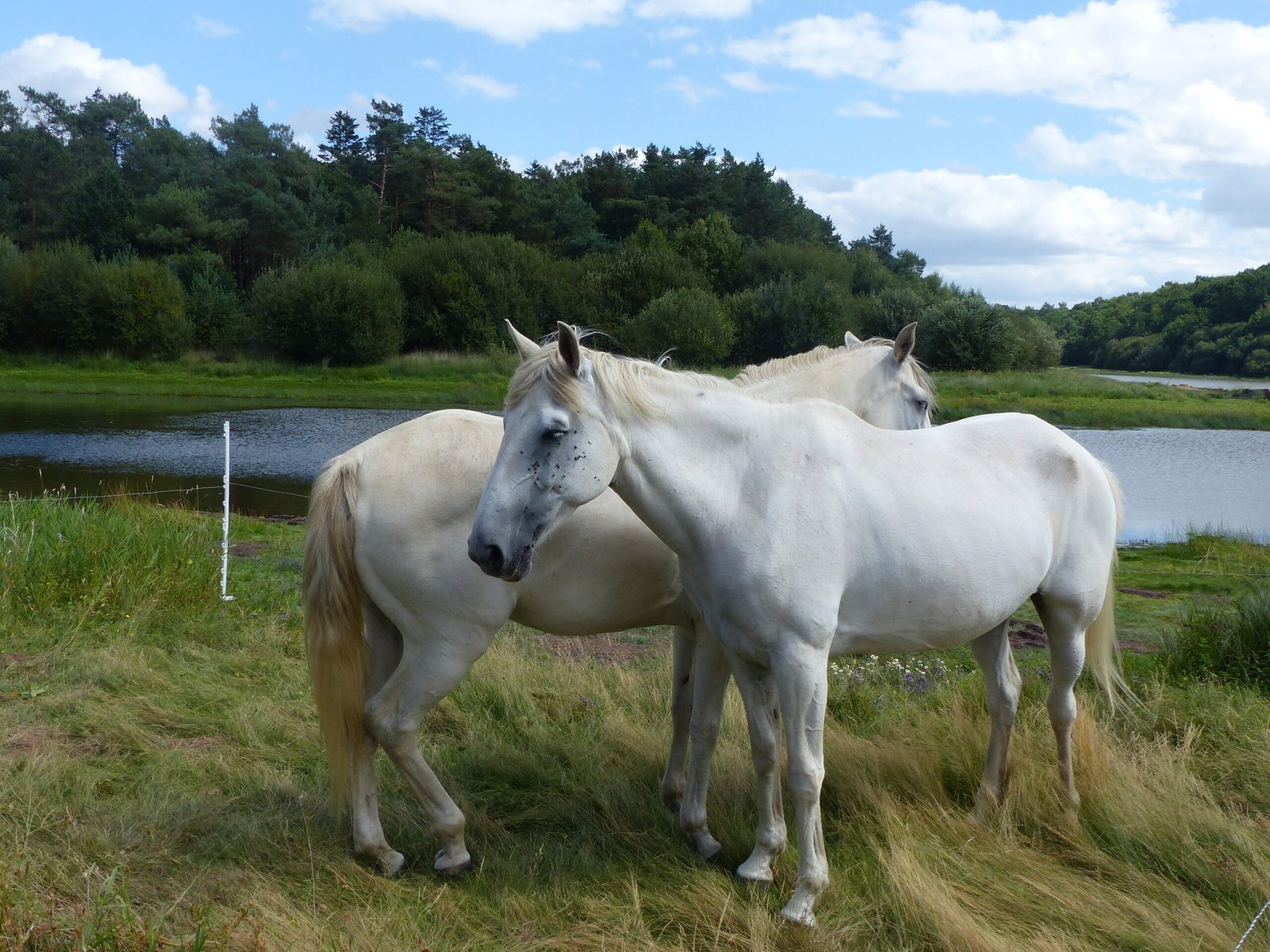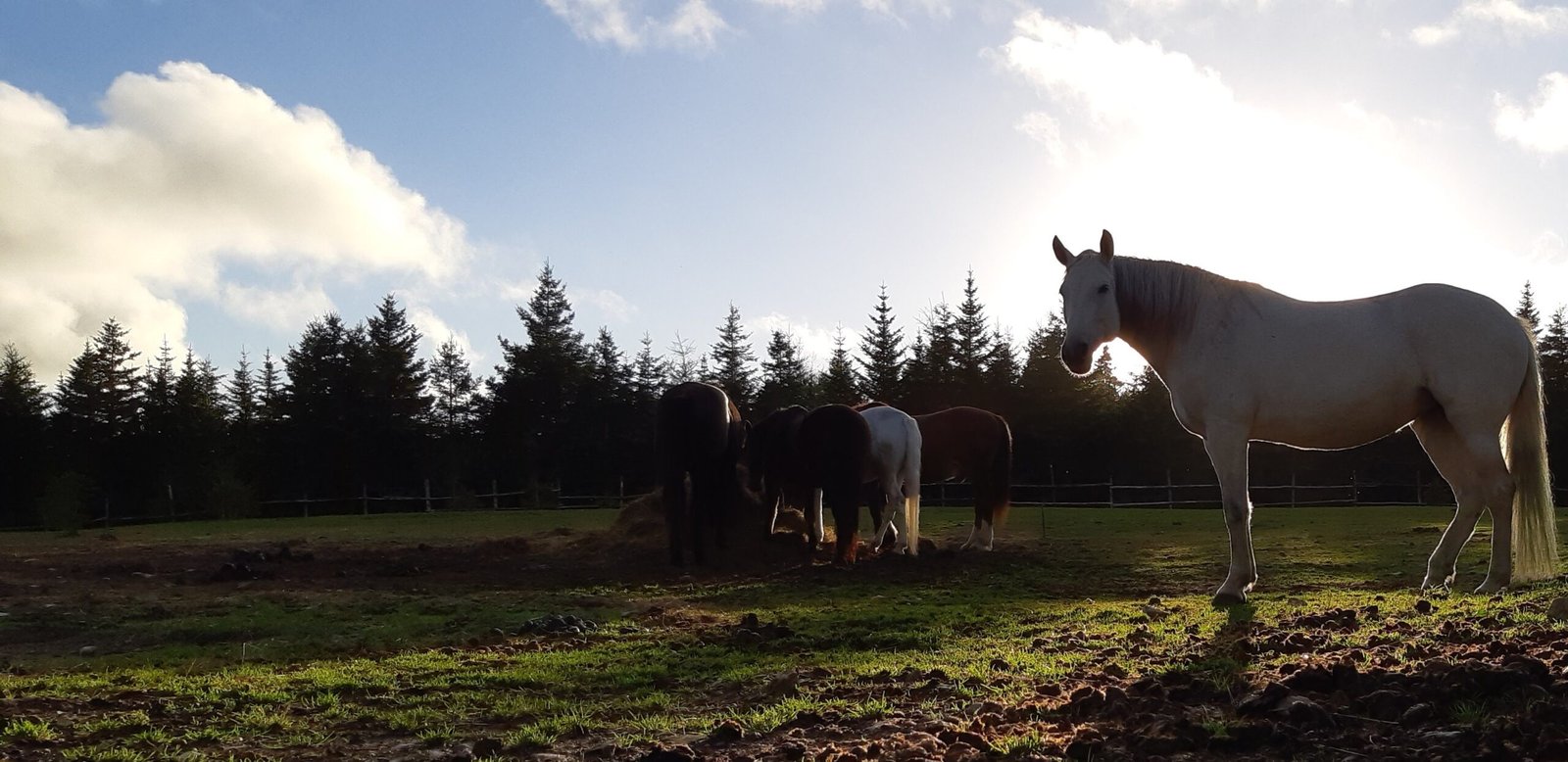It’s easy to assume that your horse is content as long as it’s fed and stabled. However, much like humans, horses have complex emotional needs. Understanding these needs can be crucial to ensuring your equine friend lives a happy and fulfilling life. In this article, we explore the signs that your horse might be stressed or unhappy. Recognizing these indicators can help you take the necessary steps to improve their well-being.
1. Changes in Eating Habits
When a horse is stressed or unhappy, one of the first things you might notice is a change in its eating habits. Horses are creatures of routine, and any deviation from their normal eating pattern can be a red flag. If your horse is eating less than usual or appears disinterested in food, it could be experiencing stress. Similarly, overeating can also be a sign of emotional distress, perhaps similar to how some people turn to comfort food in tough times. Monitoring your horse’s diet and consulting a vet when needed can help address these issues early on.
2. Altered Social Behavior

Horses are social animals by nature. They thrive in groups and often form close bonds with other horses. If you observe your horse isolating itself or displaying aggression towards its stable mates, these could be signs of unhappiness. Just like humans, horses can suffer from social anxiety and depression. It’s essential to provide them with companionship and social interactions to keep them mentally healthy. Offering opportunities for socialization can make a significant difference in your horse’s emotional state.
3. Unusual Movements or Postures
Have you noticed your horse pacing or displaying repetitive movements? These behaviors can be signs of stress and anxiety. Horses might start weaving, pawing, or even cribbing as a coping mechanism. Just like a nervous tick in humans, these actions might seem harmless at first but can lead to more severe health issues over time. Pay attention to these signs and consult an equine behaviorist if necessary. Sometimes, simple changes in the environment can alleviate these stress-induced behaviors.
4. Excessive Sweating
Horses naturally sweat to cool down, especially after exercise or in hot weather. However, excessive sweating without an obvious cause can be a sign of stress. If your horse is sweating more than usual while at rest, it could be experiencing anxiety or pain. This is similar to how humans might sweat during a stressful situation. Checking for any physical discomfort and ensuring your horse is comfortable in its environment can help manage this symptom.
5. Changes in Grooming Habits
A happy horse often takes pride in its appearance. If you notice that your horse is neglecting its grooming habits, it might be a sign of distress. Horses use grooming as a way to bond with each other, and a lack of interest in self-grooming or mutual grooming can indicate unhappiness. It’s akin to a person who stops taking care of their appearance when they’re feeling down. Make sure to regularly groom your horse and observe any changes in its coat or skin condition.
6. Increased Startle Response
An unhappy or stressed horse is often more jumpy and easily startled. You might find that your horse is reacting more intensely to noises or movements that it previously ignored. This heightened state of alertness is similar to the fight-or-flight response in humans. It can be exhausting for your horse and might lead to more significant behavioral issues if not addressed. Creating a calm and stable environment can help reduce this response.
7. Teeth Grinding or Jaw Clenching
Teeth grinding, also known as bruxism, can be a tell-tale sign of stress in horses. This behavior can lead to dental issues and discomfort if left unchecked. Your horse might grind its teeth as a way to cope with stress, similar to how humans might clench their jaw during anxiety. Regular dental check-ups and providing a stress-free environment can help alleviate this issue. Sometimes, simply increasing turnout time can make a world of difference.
8. Lack of Interest in Exercise
A horse that is disinterested in exercise might be telling you something important. While it’s normal for horses to have off days, a consistent lack of enthusiasm for physical activity can indicate stress or unhappiness. Imagine a person who used to love jogging suddenly losing interest—it often signals something deeper. It’s crucial to ensure that your horse is physically healthy and that its exercise routine is varied and engaging. Offering different types of activities can reignite their interest.
9. Tail Swishing and Ear Pinning
Body language is a powerful indicator of a horse’s emotional state. If your horse frequently swishes its tail or pins its ears back, it might be expressing displeasure or stress. These gestures are akin to a human frowning or crossing their arms. Observing these signs and understanding the context in which they occur can help you address the root cause. Whether it’s a change in routine or discomfort from equipment, identifying the trigger is key.
10. Persistent Health Issues

Finally, a horse that is consistently dealing with health issues might be experiencing underlying stress. Chronic colic, ulcers, or respiratory problems can be exacerbated by emotional distress. Just as stress can weaken the human immune system, it can have similar effects on horses. Regular veterinary care and a stable, nurturing environment are crucial in managing these health concerns. Remember, a happy horse is often a healthy horse.
In conclusion, understanding and recognizing the signs of stress and unhappiness in horses is vital for their well-being. By observing their behavior and making necessary changes, you can ensure your horse leads a happy and healthy life.

Born and bred in South Africa, a Capetonian at heart. Amy-Leigh’s love for nature and animals was inherited from her Dad. He loves taking the family on road trips to experience nature at its finest; Amy-Leigh’s favourite being whale watching in Hermanus and spotting Kudu along the West Coast. Amy-Leigh holds a BA in English Literature and Communication Studies.





